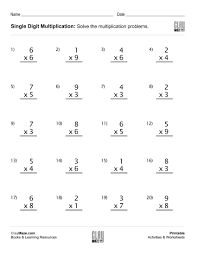Ten-year-old Jaime is struggling with her multiplication tables. Four times nine gives her trouble. Seven times eight is particularly perilous. Four times nine frequently elicits an answer of 42, occasionally 32, seldom 36. Seven times eight can be pretty much any two-digit number. Jamie’s parents send her upstairs to do another worksheet. “Check your answers,” they intone. “And don’t come downstairs until you know them all.”

What a nasty business. And it doesn’t have to be that way. Learning arithmetic facts together as a family can be fun. (Click here to discover “Greed” a competitive game significantly more exciting than professional football.) Learning arithmetic facts together as a family can be a precursor to appreciating the scientific method: “Wow! The nine-times tables are so cool! Four times nine is 36 and three plus six is nine! I wonder if each of the answers in the nine-times table sums to nine!” Learning arithmetic facts together as a family can be bonding: when something is tough for me, my parents are right there helping me learn. Helping your child to learn multiplication should be as exciting as watching your child take her first step.

Or learning arithmetic facts can be divisive. Arithmetic facts can imply solitary confinement, Jamie alone in her room trying to memorize gibberish devoid of meaning. Jamie can feel abandoned and alone rather than supported and accepted. If Jamie had diabetes, her parents would not yell at her to keep her blood sugar at an appropriate level. If Jamie has an undiagnosed learning difference in math, unrelenting hollering will not make it go away.

Two-hours later, Jamie comes back downstairs. She has written a poem. “Sometimes when you have a poem inside of you, it just has to come out,” she says. Rather than graciously accept the extraordinary lyric gift, Jamie’s parents give the poem a cursory read then turn the conversation back to single-digit multiplication. As expected, there are tears, recriminations, excuses, and buckets of misery. Jamie returns to her room. Once again, she tries to remember that four times nine is 36. Jamie internalizes that she is on her own. Jamie acknowledges that her connection with her parents is less important than her relationship with eight times seven.

Time marches on. Forty years later, Jamie is a tenured professor of comparative literature at a liberal arts college in the Pacific Northwest. She is accomplished in her field, publishing juried journal articles about 18th century French poetry. She still has no facility with multiplication specifically or numbers in general. Yet she manages just fine. She has hired an accountant who takes care of her financial needs. Her life partner is good at math although, as it turns out, the subject never comes up. Jamie and her partner have lots of other stuff to talk about. Jamie calls her parents once a year around the holidays. The conversations are perfunctory, stilted, and brief. Jamie’s parents have never met their grandchildren.

This time of year many cultures talk about forgiveness. Many folks reference resolutions. In addition to promising yourself that you’ll eat healthy and get to the gym, don’t you want to rededicate yourself to your most important relationship?

If I thought that sending Jamie to her room would allow her to connect with eight times seven, I could conceivably condone the nasty parenting that comes with her isolation, sadness, and feelings of failure. Jamie’s parents might argue, “if I don’t force her to learn the multiplication tables, she won’t learn them.” The alternative to force is failure, they say. Nah. That’s the falsest of false dichotomies. “She won’t walk down the aisle in diapers.” And she won’t get her PhD without knowing fourth grade arithmetic. What she will do is know where she stands with her narcissistic parents, parents who believe what Jamie is matters more than who Jamie is.
Non-directed advice: rejoice in your children for who they are. Accept them. Try not to castigate or humiliate them. “This hurts me more than it does you” is close to the mark. If you are punishing your kids, it’s because you have failed in some significant way to communicate your expectations.
Your kids want to be like you; your kids want to be with you; your kids want to connect with you. And the only thing worse than a once-a-year phone call from the Pacific Northwest is having grandchildren whom you’ve never met.



One thought on “Fruitful Multiplication”
Right on, David! As Thomas Paine said, “These are the times that try men’s souls!” Happy Holidays and Happy New Year!